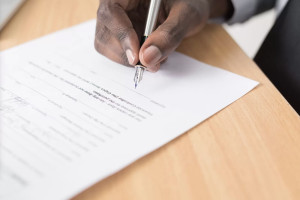Property Law and Conveyancing
Sydney’s Property Law & Conveyancing Specialists
We have one of the most experienced and knowledgeable property law teams in Australia. Our team includes several Law Society Accredited Specialists in property law and our lawyers are experts in all types of property law transactions and disputes.
Frequently Asked Questions
What is the difference between a property lawyer and conveyancer?
Do I need a lawyer or a conveyancing when buying or selling property in NSW?
What are the costs involved in buying or selling property?
How long does the conveyancing process take in NSW?
What are the main steps in the conveyancing process?
What is property development?
What are the main risks in property development?
How can a lawyer assist with property development?
What is a survey report, and do I need one?

Conveyancing (Buying & Selling Property)
Our expert Property lawyers complete over $1billion of real estate transactions each year.

Buying a Residential Property
Buying a home — whether it’s your first apartment, an investment property, or your family’s forever home — is one of ...

Selling a Residential Property
Selling your home is a major financial decision — and one that can quickly become stressful without the right guidanc...

Commercial Property
At Thornton + King, our commercial property lawyers combine decades of experience with practical, real-world insight....

Buying Commercial Property
Buying a commercial property is often one of the biggest financial decisions a business owner or investor will make. ...

Selling Commercial Property
Selling a commercial property in NSW? Thornton + King’s accredited commercial property lawyers guide you through ever...

Commercial Leasing
Whether you’re a landlord or tenant, a well-drafted commercial lease sets the foundation for a successful business re...

Retail Leasing
Whether you’re a landlord or a tenant, retail leasing in New South Wales is governed by a detailed and often technica...

Company Title Property
Unlike strata title, company title involves owning shares in a company that owns the land and building. Those shares ...

Specialist Property Development Lawyers
At Thornton + King, we act for developers, investors, landowners, and consultants on many aspects of property develop...

Strata By-Laws
Living in strata or community scheme comes with many administrative and community obligations.


